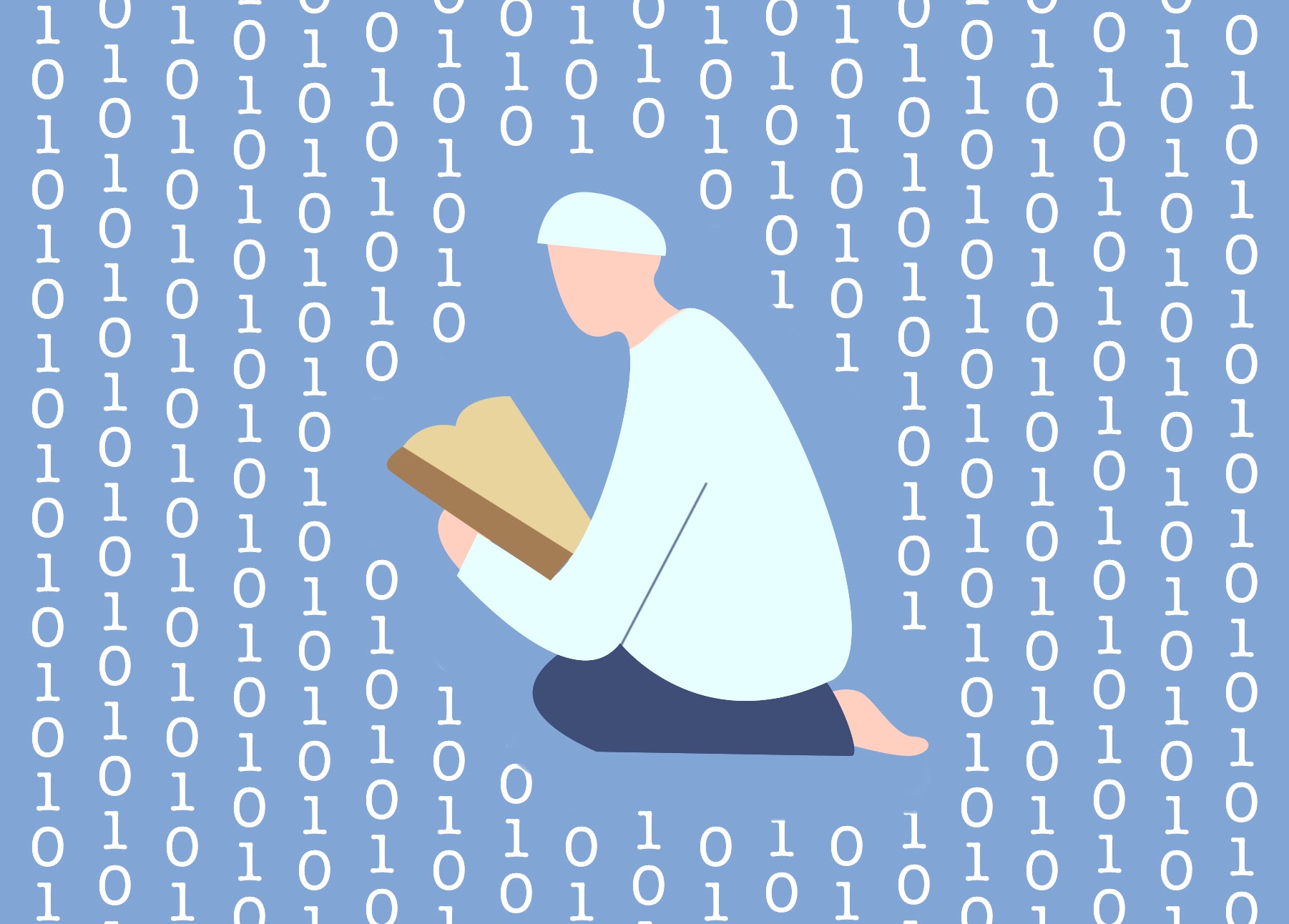Is Data Privacy a Sacred Duty for Muslims? 🙏
July 2021 Newsletter

Greetings,
What do the health sector, faith, and Congress have in common? Digital privacy! Or, well, problems when that privacy is violated. Read on for the latest on digital privacy breaches, some great tips on bot detection, and whether you should implement SMS authentication, from your friends here at humanID.
Only have a minute? Here’s a TL;DR:
![]() Check out our new posts about data mining and dating apps on the humanID blog and Medium!
Check out our new posts about data mining and dating apps on the humanID blog and Medium!
![]() Data tracking and digital privacy become a matter of faith for members of the Muslim community.
Data tracking and digital privacy become a matter of faith for members of the Muslim community.
![]() Scripps Health compromises the data of about 147,000 patients.
Scripps Health compromises the data of about 147,000 patients.
![]() Congress proposes a series of antitrust laws that look to break up many big tech companies.
Congress proposes a series of antitrust laws that look to break up many big tech companies.
 human of humanID
human of humanID
This month’s human of humanID is Gregory Rogers!
Since joining humanID in May, Gregory has come to play an integral role as lead of the Fundraising team. He currently attends the University of Hawaii at Mānoa and is studying Chinese Language and Literature. With more than 5 years of technical experience working at the National Security Agency, Gregory has developed a deep understanding of Chinese language analysis and gained valuable insight into the world of cybersecurity.
Here’s what he said about working at humanID:
“After working in National Security for five years, I was immediately drawn to humanID because democracy is clearly being negatively impacted by the internet. The passion and drive for change from the entire organization has been inspiring. The problems that we are tackling are global issues that affect the lives of billions, and that in itself is all the motivation I need.”

Join the humanID team for a community that will help you grow and challenge yourself by providing the opportunity to take on new responsibilities and collaborate with other students. Apply using the link here.
 We’re releasing new Blog and Medium posts!
We’re releasing new Blog and Medium posts!
![]() Data Privacy and Dating Apps: Dangerous Implications for the LGBTQ+ Community, by Hur-Ali Rizvi and Melinda Fern
Data Privacy and Dating Apps: Dangerous Implications for the LGBTQ+ Community, by Hur-Ali Rizvi and Melinda Fern
Learn about dating apps that collect personal data and how they impact both LGBTQ+ and non-LGBTQ+ communities.
![]() How to Detect Bots, by Megha Patel
How to Detect Bots, by Megha Patel
Read about the difference between helpful and harmful bots and how you can stay protected against them.
![]() Should I Implement SMS Authentication? by Quan Nguyen
Should I Implement SMS Authentication? by Quan Nguyen
Determine if you should be using SMS authentication and what the pitfalls are, and why you should use alternative authentication like humanID.
![]() Have any ideas for blog or Medium posts? Comment below and tell us what you think should be covered next!
Have any ideas for blog or Medium posts? Comment below and tell us what you think should be covered next!

We also want to give a shoutout to our friends at Malicious Life, a podcast created by Cyber Reason. Throughout their 123 episodes they cover topics such as cyberwarfare, cybercrime, ransomware attacks, and online misinformation. As a vision-focused startup, we respect Malicious Life’s mission to make the online world a safer, better place (to learn more about the podcast and our partnership with them click here).

 Data privacy goes hand-in-hand with religious pillars for practitioners of Islam
Data privacy goes hand-in-hand with religious pillars for practitioners of Islam
![]() Muslim communities find it particularly difficult to navigate the web when Islamic culture and data privacy become intertwined.
Muslim communities find it particularly difficult to navigate the web when Islamic culture and data privacy become intertwined.
![]() Muslims, especially those that work in the technology industry, view user data and privacy as an amanah, or trust, that they have a sacred duty to uphold.
Muslims, especially those that work in the technology industry, view user data and privacy as an amanah, or trust, that they have a sacred duty to uphold.
![]() Last year, Muslim Pro—an app that offers features such as prayer time trackers and religious text translations—was found guilty of selling its users’ location data to a tech firm that resells information to the U.S. military.
Last year, Muslim Pro—an app that offers features such as prayer time trackers and religious text translations—was found guilty of selling its users’ location data to a tech firm that resells information to the U.S. military.
![]() Many users—including those affected by Muslim Pro’s data distributions—are urging developers to make apps fully open-source, allowing source code to be audited and used freely.
Many users—including those affected by Muslim Pro’s data distributions—are urging developers to make apps fully open-source, allowing source code to be audited and used freely.
![]() What are your thoughts on apps selling user data to third-party organizations? Let us know by commenting below!
What are your thoughts on apps selling user data to third-party organizations? Let us know by commenting below!

 Scripps Health caught in legal crossfire after the theft of about 147,000 patients’ data by a ransomware attack
Scripps Health caught in legal crossfire after the theft of about 147,000 patients’ data by a ransomware attack
![]() In early May, Scripps Health–the second largest health care system in San Diego county–was hit by a ransomware attack that stole many important files including patient data, but the tricky part is that Scripps did nothing to protect these patients.
In early May, Scripps Health–the second largest health care system in San Diego county–was hit by a ransomware attack that stole many important files including patient data, but the tricky part is that Scripps did nothing to protect these patients.
![]() Scripps is now facing four class-action lawsuits on the grounds of failing to protect patients’ data and privacy.
Scripps is now facing four class-action lawsuits on the grounds of failing to protect patients’ data and privacy.
![]() How do you think Scripps handled the situation? Comment below and let us know what you think!
How do you think Scripps handled the situation? Comment below and let us know what you think!
 Series of antitrust bills set to pass through Congress as Big Tech urges Congress to slow down
Series of antitrust bills set to pass through Congress as Big Tech urges Congress to slow down
![]() These six bills set to go through Congress have the ability to break up many big tech companies. The targeted companies include Amazon, Google, Facebook, and Apple.
These six bills set to go through Congress have the ability to break up many big tech companies. The targeted companies include Amazon, Google, Facebook, and Apple.
![]() Big tech companies, like Amazon and Google, claim this will only hurt the progress of small businesses and entrepreneurs and are urging the Judiciary committee to put a stop to these bills.
Big tech companies, like Amazon and Google, claim this will only hurt the progress of small businesses and entrepreneurs and are urging the Judiciary committee to put a stop to these bills.
![]() Do you think big tech companies are justified in their claim that antitrust laws hurt small businesses? Comment below and tell us your thoughts on the new antitrust laws!
Do you think big tech companies are justified in their claim that antitrust laws hurt small businesses? Comment below and tell us your thoughts on the new antitrust laws!

Have anything to say about what we just shared? Comment below with any of your thoughts or just to chat about the internet!
Our Team
humanID is diverse and growing! People from 8 countries and 37 universities contribute to humanID’s mission, and we’re actively recruiting for our Fundraising and Sales teams for the summer. Check out open internship positions and apply here.


Can you support us in our mission to fix the internet? Donate today.
This newsletter was brought to you by Hinal Patel, Noe Rouizem, Sherry Liang, Vincent Liu, Hur-Ali Rizvi, and Chris Lethert.
Published July 15, 2021


